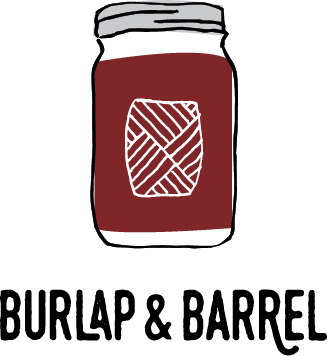Our Za'atar is made with Palestinian za'atar oregano, a very special herb that forms the backbone of this traditional, iconic seasoning. Inspired by the traditional Palestinian za'atar blend, we mixed the za'atar with our famous black lime from Guatemala, as well as benne seeds, a sesame relative with African roots that's grown in the American south. Stir into olive oil for a classic bread dip, or rub over meats and vegetables before roasting.
The 9-spice set includes:
-
 Inspired by the traditional Palestinian za'atar blend, we mixed Palestinian za'atar oregano with our famous black lime from Guatemala, as well as benne seeds, a sesame relative with African roots that's grown in the American south. Stir into olive oil for a classic bread dip, or rub over meats and vegetables before roasting.
Inspired by the traditional Palestinian za'atar blend, we mixed Palestinian za'atar oregano with our famous black lime from Guatemala, as well as benne seeds, a sesame relative with African roots that's grown in the American south. Stir into olive oil for a classic bread dip, or rub over meats and vegetables before roasting.Toasted benne seeds, sumac, za'atar oregano (Origanum syriacum), kosher salt, black lime
- Mix with olive oil as a dip for bread or rub for vegetables or protein
- Use as a rub for baked chicken or eggs
- Roast vegetables and potatoes, then top with tahini and za'atar
-
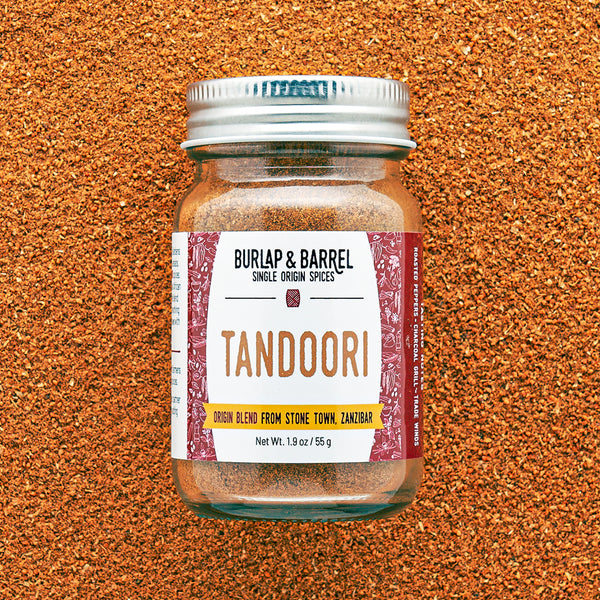 The night market in Stone Town's Forodhani Gardens is famous for grilled seafood and tiny meat kebabs, heavily seasoned with savory, complex Tandoori spices. A rich combination of Indian, Arabian and East African roasting and grilling traditions.
The night market in Stone Town's Forodhani Gardens is famous for grilled seafood and tiny meat kebabs, heavily seasoned with savory, complex Tandoori spices. A rich combination of Indian, Arabian and East African roasting and grilling traditions.Garlic, paprika, coriander, cumin, ginger, cloves, fenugreek, cardamom, mustard
- Rub on meat or vegetables before roasting or grilling
- Add to marinades for a rich, savory burst of flavor
- Make a soup or stew with tomatoes and serve with yogurt
-
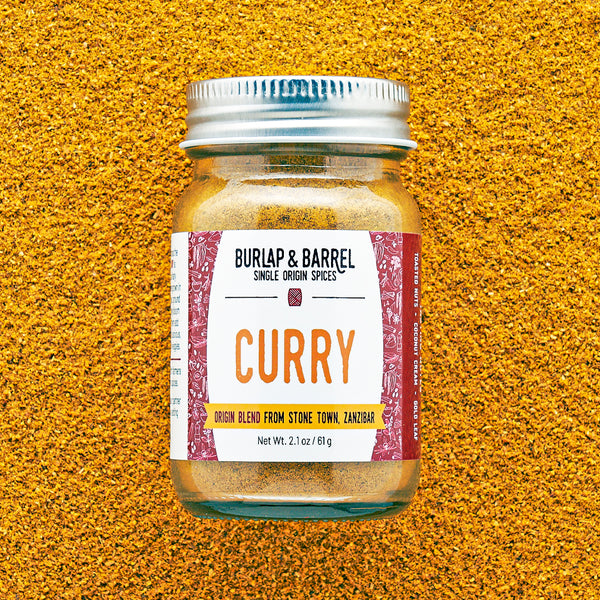 An aromatic homage to the trade winds across the Indian Ocean, our golden Swahili Coast Curry is descended from thousands of years of culinary exchange. The spices in this Origin Blend were grown in an organic agroforestry system and then dried, ground and blended by our partner cooperative.
An aromatic homage to the trade winds across the Indian Ocean, our golden Swahili Coast Curry is descended from thousands of years of culinary exchange. The spices in this Origin Blend were grown in an organic agroforestry system and then dried, ground and blended by our partner cooperative.Cumin, coriander, garlic, turmeric, black pepper, fenugreek, fennel, ginger, cardamom
- Use as a rub for meat and vegetables for roasting
- Simmer in coconut milk for stews
- Bloom in oil or ghee to start cooking a fragrant dish
-
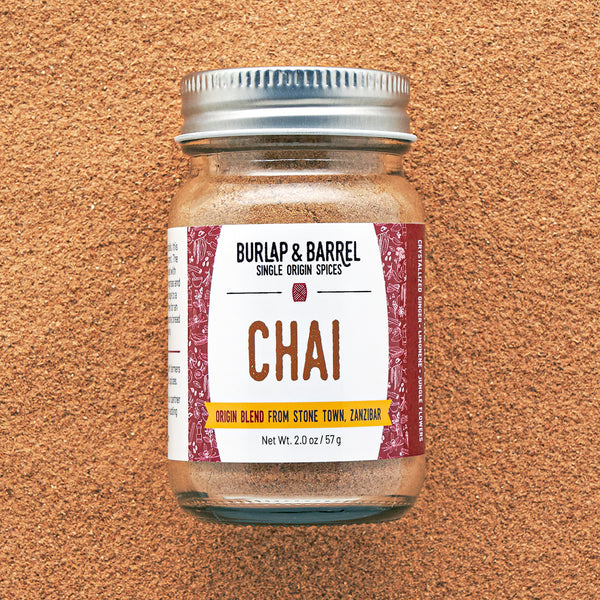 Beloved in Zanzibar's kitchens and street stalls, our Chai is warm, comforting and ethereally fragrant. The archipelago's prized pink cloves are blended with locally sourced cinnamon, cardamom, lemongrass and orange peel to create an East African homage to a beloved Indian masala.
Beloved in Zanzibar's kitchens and street stalls, our Chai is warm, comforting and ethereally fragrant. The archipelago's prized pink cloves are blended with locally sourced cinnamon, cardamom, lemongrass and orange peel to create an East African homage to a beloved Indian masala.Cardamom, ginger, cloves, cinnamon, black pepper, thyme, lemongrass, orange peel
- Zanzibar Chai (recipe from our partners in Zanzibar)
- Chai-Chili Brownies
- Add to cookies, pastries and pie dough
- Sub for spice blends in pumpkin or apple pies
-
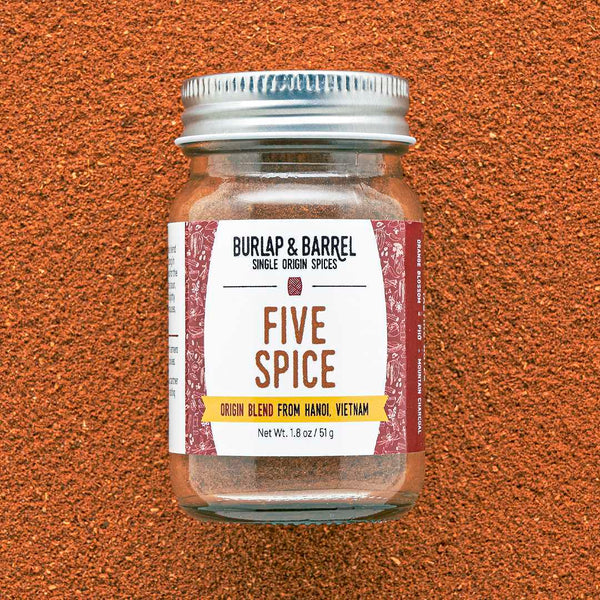 Our Five Spice is an ancient, aromatic, versatile blend beloved across East Asia. Called Ngũ Vị Hương in Vietnamese and 五香粉 in Chinese, it's named for the five traditional Chinese flavors (sweet, bitter, tart, salty and savory). It brings a warm, savory, slightly spicy burst of flavor to grilling rubs, stews, sauces, stir-fries, braises and red cooking.
Our Five Spice is an ancient, aromatic, versatile blend beloved across East Asia. Called Ngũ Vị Hương in Vietnamese and 五香粉 in Chinese, it's named for the five traditional Chinese flavors (sweet, bitter, tart, salty and savory). It brings a warm, savory, slightly spicy burst of flavor to grilling rubs, stews, sauces, stir-fries, braises and red cooking.Star anise, cinnamon, cloves, black pepper, coriander
- Combine with soy sauce as a glaze for cooking protein or hearty vegetables
- Use as a sub for cinnamon in desserts
- Add to braises, beans and other long-cooked dishes
-
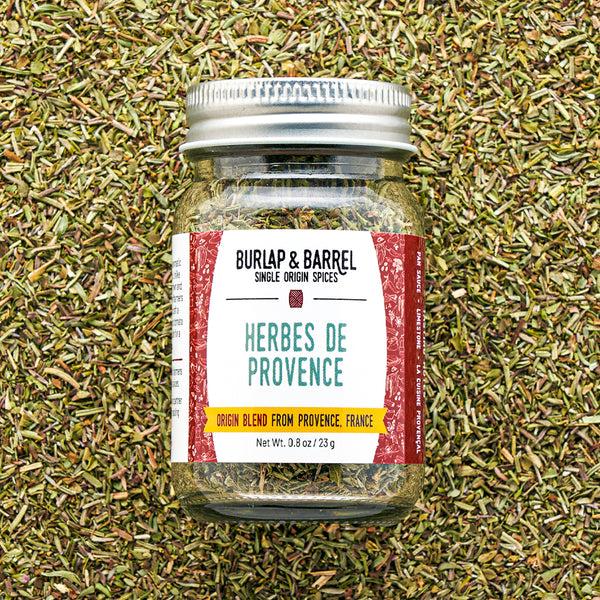 Herbes de Provence is an iconic blend of hardy, aromatic herbs and a cornerstone of French cooking. Unlike every other product in the US, ours is truly grown and blended in Provence itself, by a cooperative of farmers who cultivate organic heirloom herbs and craft a perfectly balanced, traditional mélange. Add to tomato sauces, roasts, pan sauces and any other dish for a boost of savory, fragrant aromatics.
Herbes de Provence is an iconic blend of hardy, aromatic herbs and a cornerstone of French cooking. Unlike every other product in the US, ours is truly grown and blended in Provence itself, by a cooperative of farmers who cultivate organic heirloom herbs and craft a perfectly balanced, traditional mélange. Add to tomato sauces, roasts, pan sauces and any other dish for a boost of savory, fragrant aromatics.Rosemary, savory, oregano, thyme
- Rub on proteins (especially chicken) before braising or baking
- Sprinkle over fresh tomatoes with good olive oil and bake, then eat with crusty bread
- Coat potatoes in a mixture of olive oil and salt, then add herbs and bake or pan-fry
-
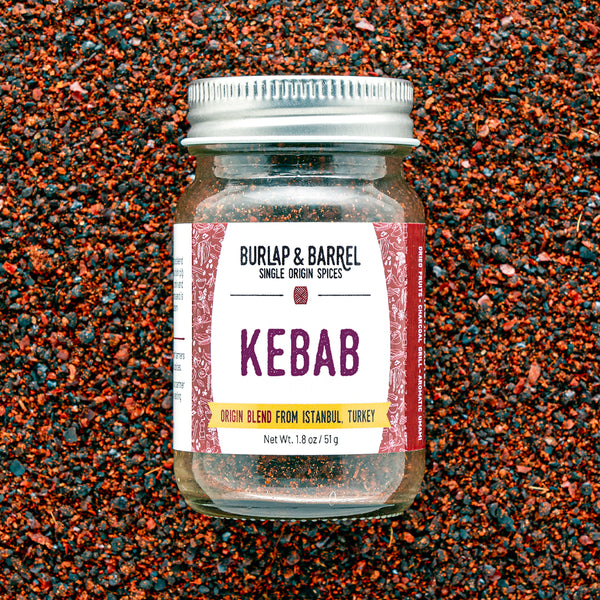 Deeply savory and bursting with flavor, Köfte Baharat is a traditional Turkish spice blend for meat. A classic, savory blend of chilis, garlic, cumin and allspice, it has a warm flavor and enticing aroma and is perfect for Turkish and Eastern Mediterranean dishes. Versatile and balanced, it's at home in sausage, burgers, veggies, beans and soups.
Deeply savory and bursting with flavor, Köfte Baharat is a traditional Turkish spice blend for meat. A classic, savory blend of chilis, garlic, cumin and allspice, it has a warm flavor and enticing aroma and is perfect for Turkish and Eastern Mediterranean dishes. Versatile and balanced, it's at home in sausage, burgers, veggies, beans and soups.Black Urfa chili, silk chili, cumin, allspice, garlic, sea salt, sunflower seed oil
- Rub on meats or vegetables before grilling or roasting
- Add to meatball or bulgur mix before cooking
-
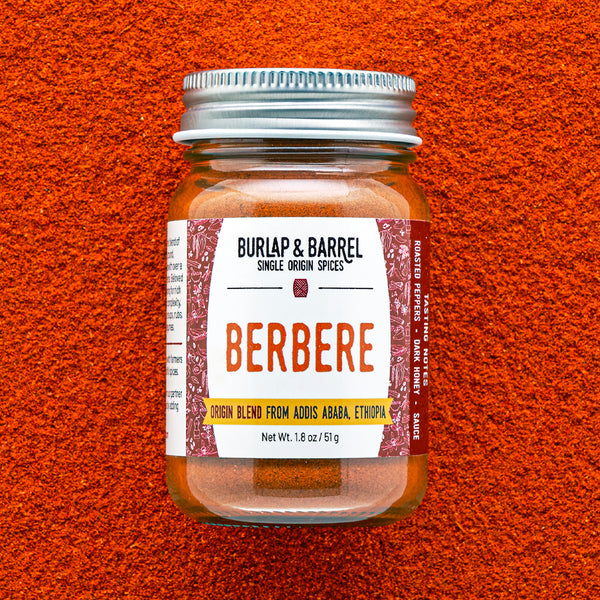 Our Berbere is an iconic and deeply flavorful blend of berbere chilies that are dried, ground, fermented, dried again and finally blended with over a dozen indigenous Ethiopian spices and herbs. Beloved across Ethiopia and Eritrea as the seasoning for rich stews and meats.
Our Berbere is an iconic and deeply flavorful blend of berbere chilies that are dried, ground, fermented, dried again and finally blended with over a dozen indigenous Ethiopian spices and herbs. Beloved across Ethiopia and Eritrea as the seasoning for rich stews and meats.Berbere-variety chili peppers, garlic, onions, holy basil, rue, rosemary, ginger, grains of paradise, thyme, fenugreek, cumin, kosseret, cinnamon, ajwain, long pepper, cloves, salt
- Use in Ethiopian dishes like tibs, chechebsa, misir and tomato sauces
- Rub meat or proteins before grilling or roasting
- Sprinkle into a pot of beans, especially with coconut milk!
-
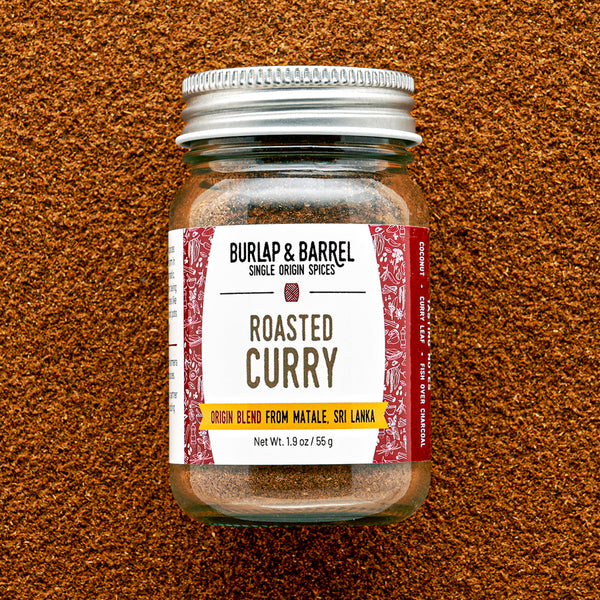 Classic dark-roasted Sri Lankan curry powder, made from spices grown all on one farm.
Classic dark-roasted Sri Lankan curry powder, made from spices grown all on one farm.Black pepper, coriander, cumin, fennel, garlic, chili, cardamom, cinnamon, ginger, curry leaves, ramps, lemongrass
- Bloom in oil to start curries and stews
- Add to roasting or braising meats and vegetables
- Season dark beans
Highlights
Ingredients
Toasted benne seeds, sumac, za'atar oregano (Origanum syriacum), kosher salt, black lime
Cooking tips
- Mix with olive oil as a dip for bread or rub for vegetables or protein
- Use as a rub for baked chicken or eggs
- Roast vegetables and potatoes, then top with tahini and za'atar
SOURCING

Our za'atar oregano was cultivated by a family in the hills outside of Ramallah using artisanal and organic methods, including collecting limited rainwater to grow the za'atar plants. Like many Palestinians, they are denied access to the aquifers beneath their feet and must practice water-saving techniques to grow their traditional crops.
When the herb's fuzzy, heart-shaped leaves are ready for harvest throughout the summer, they are hand-picked by farmers who learned their craft from their parents and grandparents and cultivate the same land, rare in a place where many farming families have had their land taken away from them.
After harvest, the za'atar is dried and then ground at a local mill. Careful stone milling of the za'atar leaves before blending is essential to create the distinctive light, fluffy texture of real Palestinian za'atar. We combine the za'atar oregano with our exceptional single origin spices for this blend.
We're grateful for the partnership of Manal from Re7het Falasteen in helping set up this supply chain and coordinating the production from Palestine to the US. They also carry exceptional Palestinian foods and pantry goods, so make sure to check out their site.
























